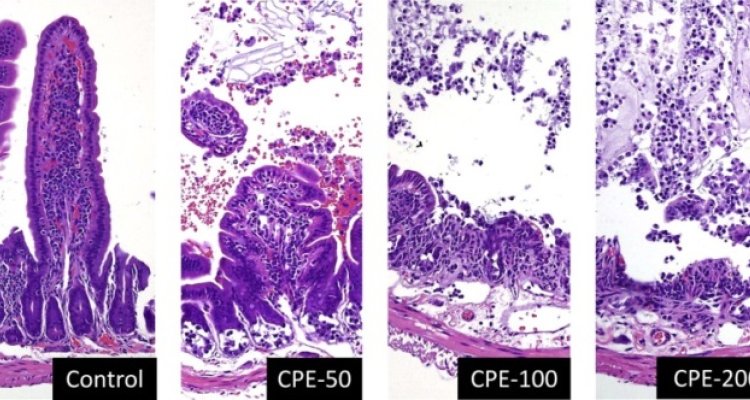
Project
Internship: Identification of genetic differences between phylogenetically distant Clostridium perfringens strains
Note !This project will take
place at NIZO Food Research, Ede
Background:
Clostridium perfringens is an anaerobic spore-forming bacterium, and a major cause of food poisoning. Food poisoning is mainly caused by the Clostridium perfringens enterotoxin (CPE), which targets gut epithelial cells and is found in ~1-5% Type A C. perfringens strains. This gene can be located on the chromosome (C-cpe) or on a plasmid (P-cpe), and its location is associated with the resistance properties of the spore. Spores generated by C-cpe strains are significantly more heat resistant than P-cpe and cpe-negative strains. Recent whole genome sequence analysis of 24 strains suggests that C-cpe containing C. perfringens strains belong to a distinct phylogenetic group compared to P-cpe and cpe-negative, and show specialisations for growth and survival in different environmental conditions. Although some factors have been identified, the complete mechanism of spore resistance, as well as the origins/causes of niche specialisation, are unknown.
Objectives:
General:
• To identify the genomic causes of variation between Type A C. perfringens strains, in relation to spore properties and niche specialisation;
• To identify further phenotypic differences between Type A C. perfringens strains;
• To aid the updating of food sterilisation protocols, taking into account observed strain variation.
Specific:
Using current Clostridium genetic techniques and bioinformatic analyses, we aim to generate mutants in target genes and characterise resulting phenotypes. In addition, assays will be carried out to assess the spore resistance properties (against chemicals, UV light, etc) of 24 fully sequenced Type A C. perfringens strains. By identifying what makes some spores more resistant than others, we may be able to improve the design of industrial and medical decontamination processes, in addition to gaining a greater understanding of spore resistance in C. perfringens.
Methodology:
The project will involve several molecular biology and microbiology techniques. These include, but are not limited to: PCR, qPCR, Southern blotting, anaerobic bacteria cultivation, DNA isolation, molecular cloning, environmental/chemical resistance assays. Bioinformatic analysis will also be carried out.
Requirements:
Candidate should have a background in microbiology and/or molecular genetics, with practical experience of working with Category II microorganisms. Basic knowledge of sporulation and its processes is recommended. Experience with working in an anaerobic chamber preferable, but not required.
Contact information: peter.vanbaarlen@wur.nl